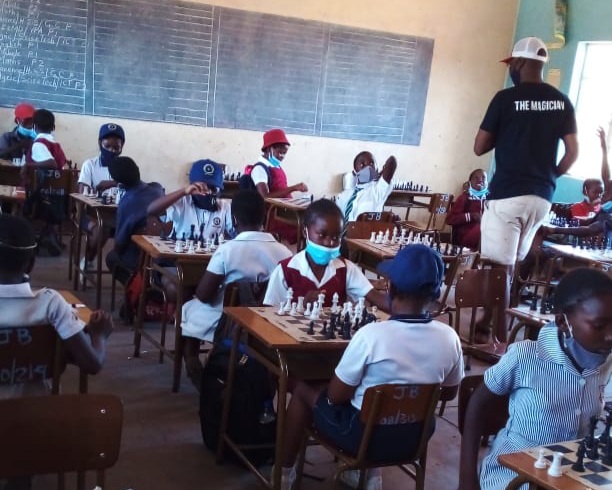BY FARAI MUTSAKA
Zimbabwe is seeking international support to be allowed to sell its stockpile of seized ivory, saying the US$600 million it expects to earn is urgently needed for the conservation of its rapidly growing elephant population which it describes as “dangerous.”
Officials from the Zimbabwe National Parks and Wildlife Management Authority showed ambassadors from European Union countries the stockpile of ivory tusks that have been seized from poachers and collected from elephants that have died.
The Zimbabwean officials appealed to the European Union and other countries to support the sale of ivory which has been banned since 1989 by CITES, the international body that monitors endangered species.
Zimbabwe has 163,000 tons of ivory and 67 tons of rhino horn, said Mangwanya.
Envoys from the Netherlands, Germany, France, Britain, Switzerland, Canada and the United States viewed the ivory tusks in heavily guarded vaults in Harare.
Swiss ambassador to Zimbabwe Niculin Jager, speaking on behalf of the envoys, emphasised the need to fight the poaching of elephants.
“Conservation and prevention of illegal wildlife trade is an international issue because of the involvement of criminal syndicates in illegal wildlife trade, hence there is need to strengthen international co-operation,” he said.
Later this month Zimbabwe will be hosting what it calls an “elephant summit” in which representatives of 14 African countries, as well as from China and Japan, will consider ways to manage the populations of the world’s largest land animal.
“We need assistance. These elephants are multiplying at a dangerous rate, five percent per annum,” the parks and wildlife agency’s director-general, Fulton Mangwanya, said during the tour.
Zimbabwe’s estimated 100,000 elephants are double the carrying capacity of its national parks.
The overcrowded elephants are destroying the trees and shrubs that are vital for them and other wildlife, say parks officials.
Zimbabwe’s elephant population is getting so big that Mangwanya warned “it will be very difficult for us to do anything, but culling which is opposed by everyone.”
Neighboring Botswana has the world’s largest elephant population with more than 130,000.
Together Zimbabwe and Botswana have nearly 50 percent of the world’s elephants.
The two countries say they are struggling to cope with the booming numbers and are pressing to be allowed to sell their stockpiles of tusks seized from poachers or removed from dead elephants.
Other African countries, such as Kenya, insist that all ivory sales should be banned to discourage any international trade in ivory.
In addition to banning ivory sales, CITES in 2019 also imposed restrictions on the sales of wild elephants caught in Zimbabwe and Botswana, a move that pleased some conservationists but dismayed officials struggling to manage their overloaded parks.
There is a flourishing illegal trade in ivory in which international syndicates fund poachers to kill elephants and saw off their ivory tusks. The ivory is then smuggled overseas, where there is a demand for ivory for jewelry and trinkets.
Increased poaching and loss of habitat have made Africa’s elephant populations more endangered, the International Union for Conservation of Nature said last year.
Zimbabwe and Botswana say they are ill-equipped to deal with poachers without the money from ivory sales, especially because earnings from tourism have dwindled due to Covid—19 related travel restrictions since 2020.
Zimbabwe has pledged to use “all” proceeds from ivory sales to fund conservation in its wildlife parks and to support communities that live near parks and “bear the brunt” of conflict with the wildlife, said Mangwanya.
Zimbabwe argues that funds that benefit people who live near the parks will motivate them to support the fight against poaching instead of relying on it for their livelihoods.
Zimbabwe proposes a “once-off sale in this Covid—19 pandemic era,” Mangwanya said.
“There is a great market for valuable ivory and we can’t trade to generate financial resources for the implementation of elephant management plans,” Mangwanya said.
“It’s now worse with Covid and with low business in tourism where we derive our revenue from.
“Where do we get the money to look after the resources?”- AP

 Slider1 year ago
Slider1 year ago
 News1 year ago
News1 year ago
 Tourism and Environment2 years ago
Tourism and Environment2 years ago
 News3 years ago
News3 years ago
 News2 years ago
News2 years ago
 News2 years ago
News2 years ago
 News1 year ago
News1 year ago
 News1 year ago
News1 year ago















